Management of Non-Scarring Alopecia in Patients with Skin of Color
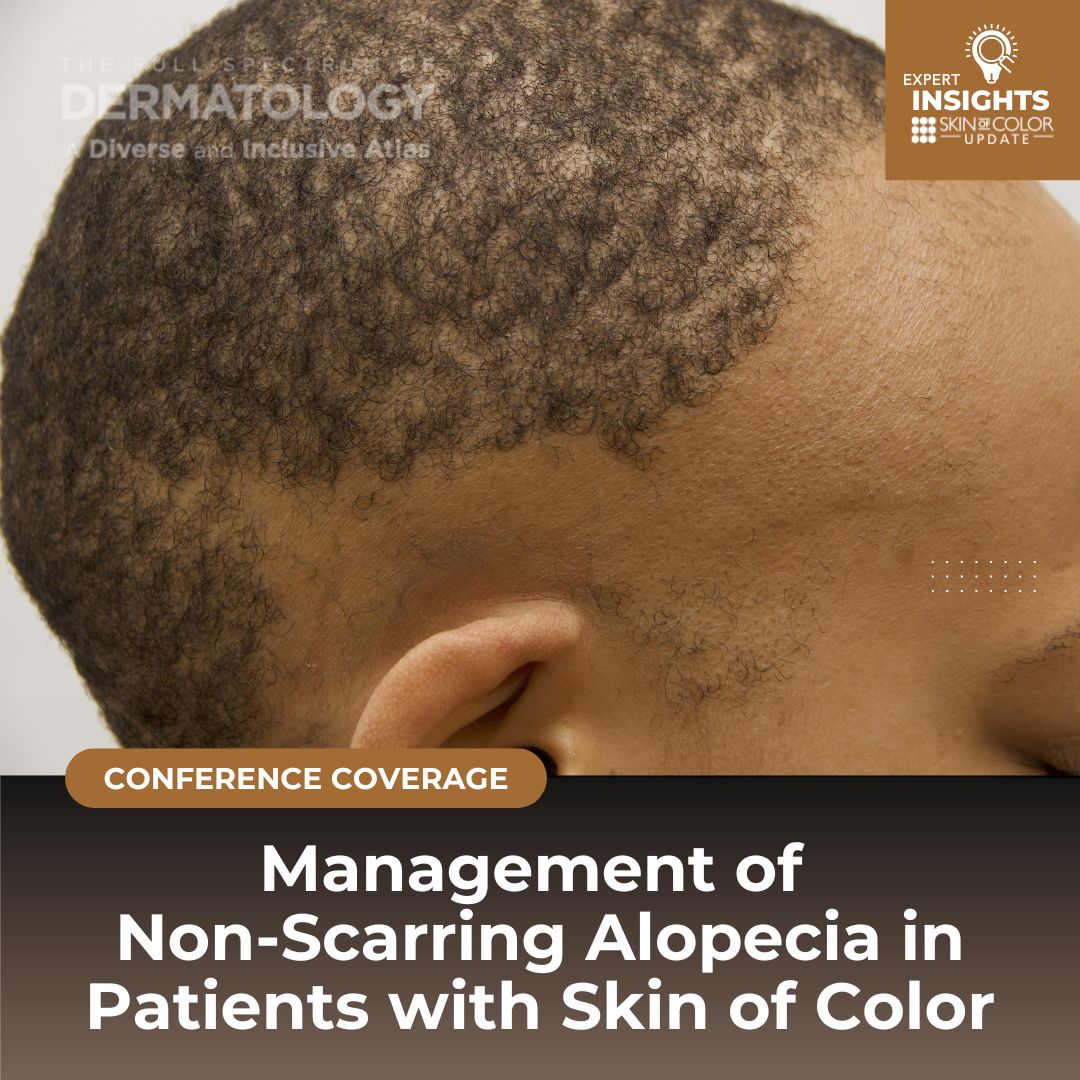 Delivering effective dermatologic care for patients with skin of color requires a deep understanding of their unique needs. In her presentation at the Skin of Color Update, Dr. Amy McMichael, professor in the Department of Dermatology at Wake Forest School of Medicine, shared practical insights on managing non-scarring alopecia, emphasizing the importance of considering both biological and cultura …
Delivering effective dermatologic care for patients with skin of color requires a deep understanding of their unique needs. In her presentation at the Skin of Color Update, Dr. Amy McMichael, professor in the Department of Dermatology at Wake Forest School of Medicine, shared practical insights on managing non-scarring alopecia, emphasizing the importance of considering both biological and cultura …
 Delivering effective dermatologic care for patients with skin of color requires a deep understanding of their unique needs. In her presentation at the Skin of Color Update, Dr. Amy McMichael, professor in the Department of Dermatology at Wake Forest School of Medicine, shared practical insights on managing non-scarring alopecia, emphasizing the importance of considering both biological and cultura …
Delivering effective dermatologic care for patients with skin of color requires a deep understanding of their unique needs. In her presentation at the Skin of Color Update, Dr. Amy McMichael, professor in the Department of Dermatology at Wake Forest School of Medicine, shared practical insights on managing non-scarring alopecia, emphasizing the importance of considering both biological and cultura … Continue reading "Management of Non-Scarring Alopecia in Patients with Skin of Color"


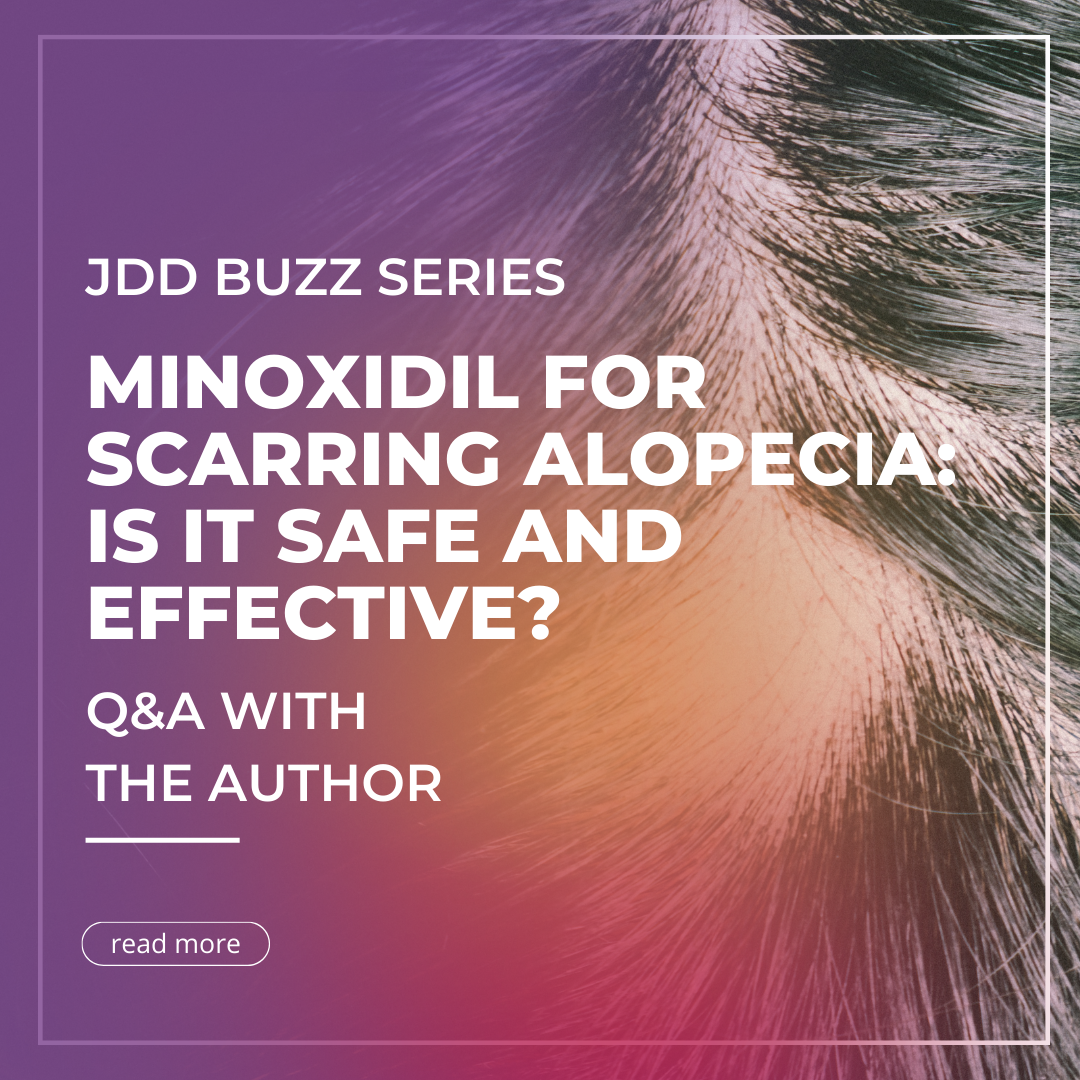 Topical minoxidil and, more recently, low-dose oral minoxidil are often used to treat hair disorders. But are these treatments safe and effective for scarring alopecia? A scoping review published in the March issue of the Journal of Drugs in Dermatology sought to determine what research says about the use of these treatments for central centrifugal cicatricial alopecia, frontal fibrosing alopecia, …
Topical minoxidil and, more recently, low-dose oral minoxidil are often used to treat hair disorders. But are these treatments safe and effective for scarring alopecia? A scoping review published in the March issue of the Journal of Drugs in Dermatology sought to determine what research says about the use of these treatments for central centrifugal cicatricial alopecia, frontal fibrosing alopecia, … 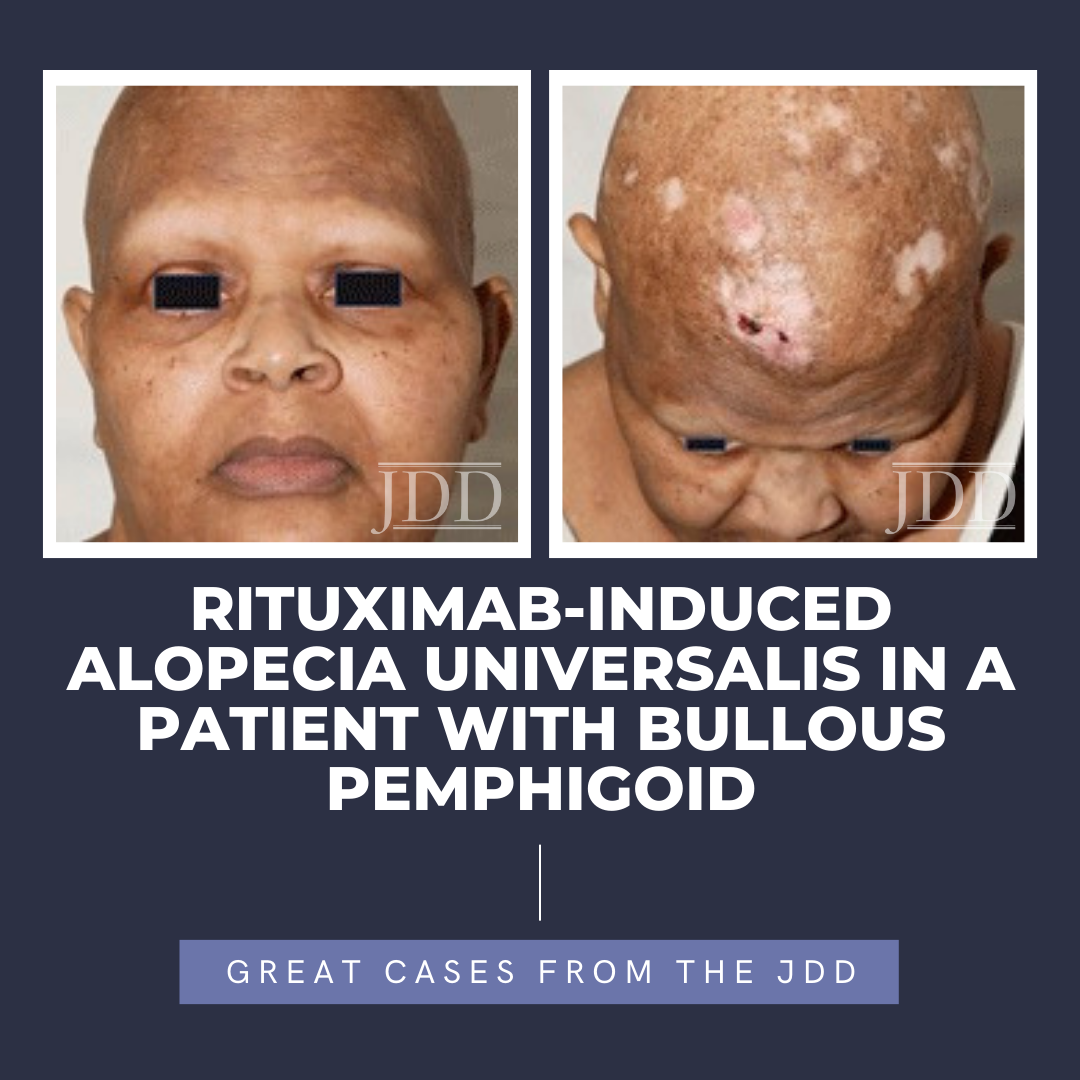 Alopecia areata is a CD8+ T-lymphocyte driven autoimmune disorder leading to reversible hair loss. While most commonly presenting as isolated well-demarcated non-cicatricial alopecic patches on the scalp, subtypes of alopecia areata include alopecia totalis with loss of all scalp hair and alopecia universalis with complete loss of all body hair. Although primarily an idiopathic condition, several …
Alopecia areata is a CD8+ T-lymphocyte driven autoimmune disorder leading to reversible hair loss. While most commonly presenting as isolated well-demarcated non-cicatricial alopecic patches on the scalp, subtypes of alopecia areata include alopecia totalis with loss of all scalp hair and alopecia universalis with complete loss of all body hair. Although primarily an idiopathic condition, several … 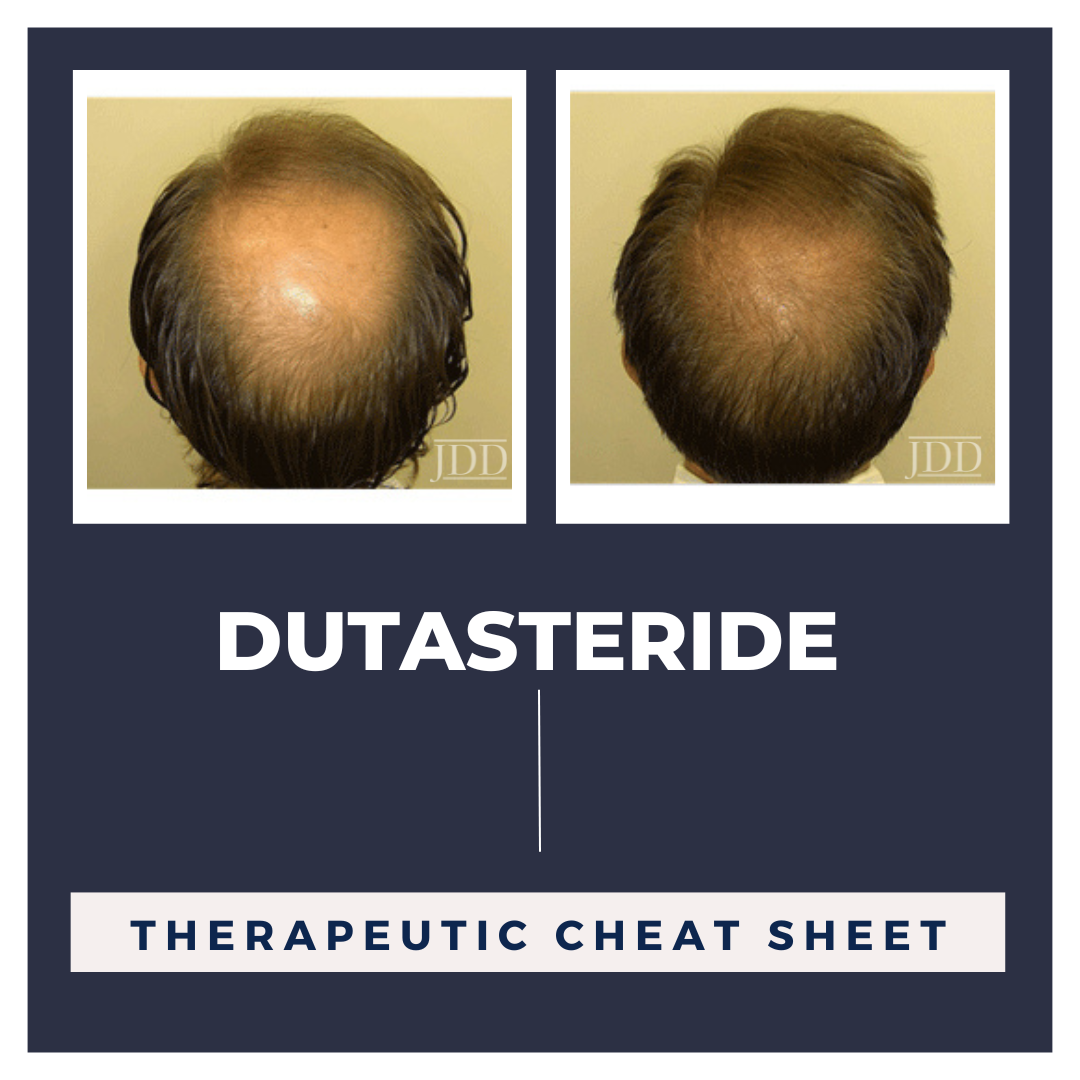 Androgenic alopecia (AGA) is one of the most common forms of hair loss and represents a frequently faced disabling concern in dermatology visits. Targeting the 5α-dihydrotestosterone (DHT) pathway has been shown to be an efficacious mechanism of action, with finasteride being the only systemic FDA-approved drug to treat male AGA. Recently, its sister drug, dutasteride, has been increasingly utili …
Androgenic alopecia (AGA) is one of the most common forms of hair loss and represents a frequently faced disabling concern in dermatology visits. Targeting the 5α-dihydrotestosterone (DHT) pathway has been shown to be an efficacious mechanism of action, with finasteride being the only systemic FDA-approved drug to treat male AGA. Recently, its sister drug, dutasteride, has been increasingly utili … 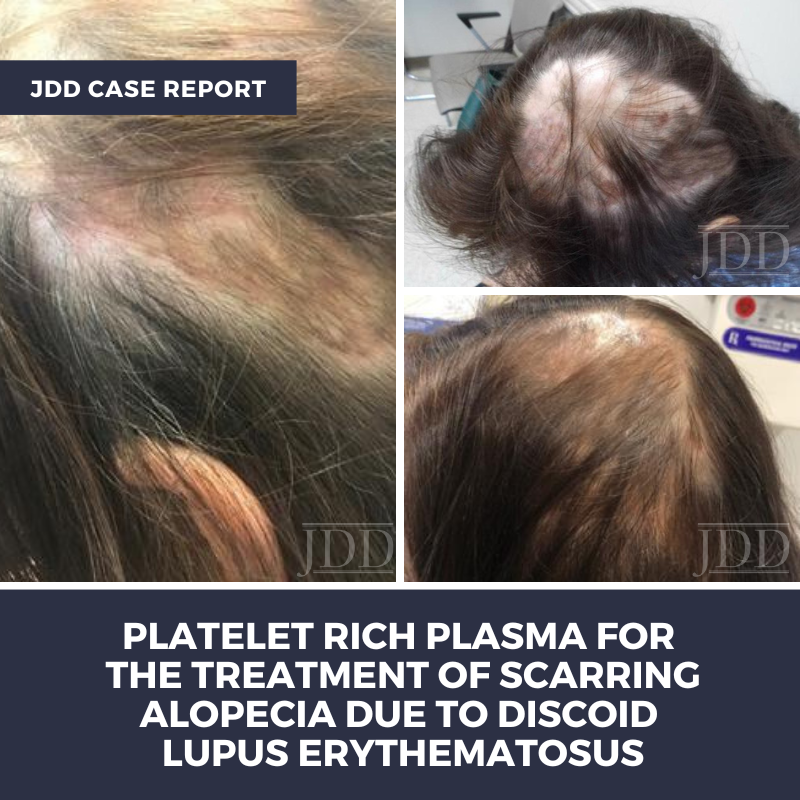 JDD authors Hannah Polster MD, Karen Kagha MD, and Janiene Luke MD report a case of platelet rich plasma for the treatment of scarring alopecia due to discoid lupus erythematosus.
Platelet-rich plasma (PRP) is an autologous concentration of plasma from a patient's blood containing platelets up to 7 times higher than normal plasma.1 Originally indicated to improve connective tissue regeneratio …
JDD authors Hannah Polster MD, Karen Kagha MD, and Janiene Luke MD report a case of platelet rich plasma for the treatment of scarring alopecia due to discoid lupus erythematosus.
Platelet-rich plasma (PRP) is an autologous concentration of plasma from a patient's blood containing platelets up to 7 times higher than normal plasma.1 Originally indicated to improve connective tissue regeneratio …